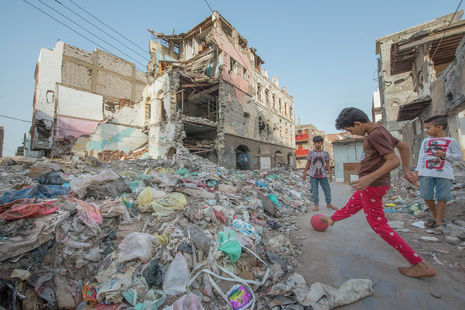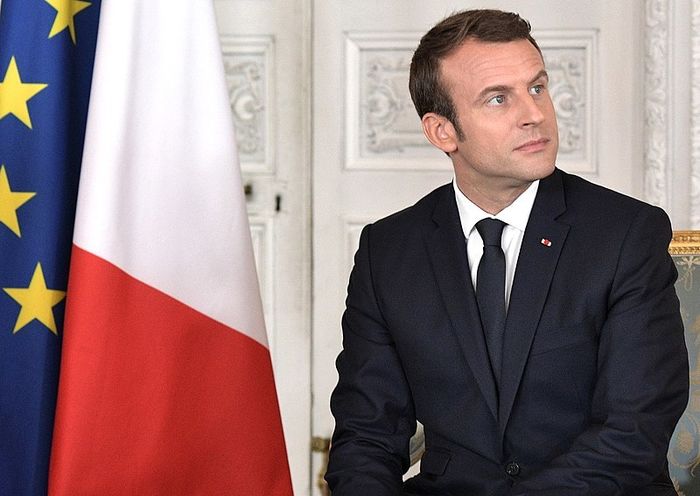Conservative foreign policy is disastrous for Yemen and brings shame on this country
Despite the parties pledge to support a ‘global Britain’, Eric Williams argues the Conservative government’s policies have led to further catastrophe in Yemen

In the wake of Russia’s blockade of Ukrainian grain exports and projected surges in global food prices, the Conservative government’s disappointing aid commitment to Yemen at the UN Humanitarian Conference last week was a damning indictment of ‘global Britain’s ’ role on the international stage.
Despite food insecurity spreading to another million people over the last year, with sixty per cent of Yemenis now requiring external assistance, the UK has maintained its major aid cuts - pledging only £88 million in spite of the World Food Programme’s warnings over the threat of mass starvation. As the UN Security Council penholder for Yemen, Britain has the power to encourage peace initiatives between the Houthis and the Saudi-led coalition, and thus holds outsized responsibility for the continuation of conflict, the intensification of bombing campaigns, and the dire conditions facing Yemen’s citizens.
The UK’s export of military goods to Saudi Arabia and the UAE, setting aside sales to other Gulf Cooperation Council (GCC) states still involved in the coalition, was valued at £281 million for 2021/22 - more than triple the national aid contribution over the same period. Coupled with the pursuit of Gulf investment since leaving the EU, as demonstrated in last week’s push to build on the £10 billion UK-UAE sovereign investment partnership (SIP) with a Saudi Arabian equivalent, it is clear that this government’s priorities lie elsewhere from pursuing negotiation and a stable peace.
"This government’s priorities lie elsewhere from pursuing negotiation and a stable peace"
The humanitarian crisis is largely the outcome of the civil war involving the Houthi Government of National Salvation, the internationally recognised Saudi-backed Hadi government and the UAE-backed secessionist Southern Transitional Council (STC). Years of conflict have destroyed crucial infrastructure, coalition-imposed blockades generated food and fuel insecurity and political manoeuvrings undermined the Central Bank of Yemen’s capacity to distribute public employee wages, preserve the value of the rial, and enact basic stabilisation policies. However, whilst the scale of Yemeni citizens’ suffering from extreme poverty has mostly emerged since the failure of the transitional regime in 2015, the UK’s responsibility for problems in the region runs deeper. Since the successful 1960s liberation struggles against British colonialism in the south and the Imamate in the North, the UK, the US and international organisations’ actions have undermined Yemeni projects to build stable and dignified living standards.
Yemen’s 2011 Arab Spring protests, out of which emerged the transferal of power from President Saleh to the GCC initiative’s transitional government under Hadi, were initially as much against the widespread unemployment generated by Saleh’s IMF-encouraged reforms as they were against the incumbent President’s autocratic proposed changes to the constitution. The IMF’s 1995 Economic, Financial and Administrative Reform Programme and following neoliberal structural adjustment packages of the 2000s had seen in an era of privatisation of public enterprises, reduction of public sector workforce, trade liberalisation and removal of fuel and wheat subsidies. A major feature of popular sentiment at Yemen’s 2011 ‘Change Squares’, reflecting the grievances of a wide array of social groups, was opposition to the economic fallout of these policies. Indeed, the elevation of the Houthi movement, against whom UK arms are now used, to a level of strength at which President Hadi was forced to resign in 2015, triggering Saudi Arabia’s ‘Decisive Storm Offensive’, was fuelled by the collapse of the transitional regime’s popularity after continuing Saleh’s former practice of removing fuel subsidies at the behest of international financial institutions.
"Catastrophe in Yemen is not an inevitable consequence of a complex conflict"
That we are currently complicit in the destruction of the last remnants of post-colonial advances in infrastructure, health and living standards in an area formerly subject to British imperial rule is a revealing reflection of the reality of the Conservative’s ‘global Britain’. Despite the regime’s many problems, the People’s Democratic Republic of Yemen, a socialist state established out of the National Liberation Front’s struggle against British direct and indirect rule in southern Yemen, produced broadly distributed gains to the population in an atmosphere of international hostility from the US and UK, and antagonism from the surrounding monarchist states.
Provisioning of free healthcare, education, modest nationalised housing rents and relatively comprehensive infrastructure networks were developed from a difficult economic inheritance at independence, overcoming the barriers of underdevelopment, limited natural resources and the fallout of the 1967 Arab-Israeli war on Aden port’s critical activities. Similarly, although open Saudi Arabian and secret British support to royalist factions in the northern civil war succeeded in limiting the presence of Nasserist and Movement of Arab Nationalist forces in the post-Imamate Yemen Arab Republic, governance under President Hamdi in the 1970s, strengthened by migrant workers’ remittances during the oil boom, provided relatively well-distributed benefits regardless of the predominance of royalist and right-wing republican factions in the newly established republic.
Catastrophe in Yemen is not an inevitable consequence of a complex conflict. Citizens have watched hard-fought for conditions deteriorate over two decades of structural adjustment after unification, over years of international isolation for refusing to join Gulf War coalition forces and over seven years of internationalised civil war. After Friday’s announcement of a two-month truce, there is a rare window of opportunity to negotiate a stable, long-term solution involving all sides. However, in the wake of announcements that 13 million people are headed for starvation in 2022, five years on from the worst outbreak of cholera in modern history in 2017, Boris Johnson signed a memorandum of understanding last week to establish a strategic partnership council with Saudi Arabia. Far from seizing the opportunity for peace, the government has been under fire by aid groups for plans to designate the Houthis, a group whose inclusion is necessary for any settlement to be sustainable, as a terrorist organisation. This is the Conservative’s ‘global Britain’ - cutting aid while profiting from the continued destruction of a region once subject to British colonialism – situating our country against human rights and justice abroad.
 News / Cambridge academics sign open letter criticising research funding changes22 February 2026
News / Cambridge academics sign open letter criticising research funding changes22 February 2026 News / Supporters protest potential vet school closure22 February 2026
News / Supporters protest potential vet school closure22 February 2026 News / University Council rescinds University Centre membership20 February 2026
News / University Council rescinds University Centre membership20 February 2026 News / Hundreds of Cambridge academics demand vote on fate of vet course20 February 2026
News / Hundreds of Cambridge academics demand vote on fate of vet course20 February 2026 Comment / A tongue-in-cheek petition for gowned exams at Cambridge 21 February 2026
Comment / A tongue-in-cheek petition for gowned exams at Cambridge 21 February 2026










